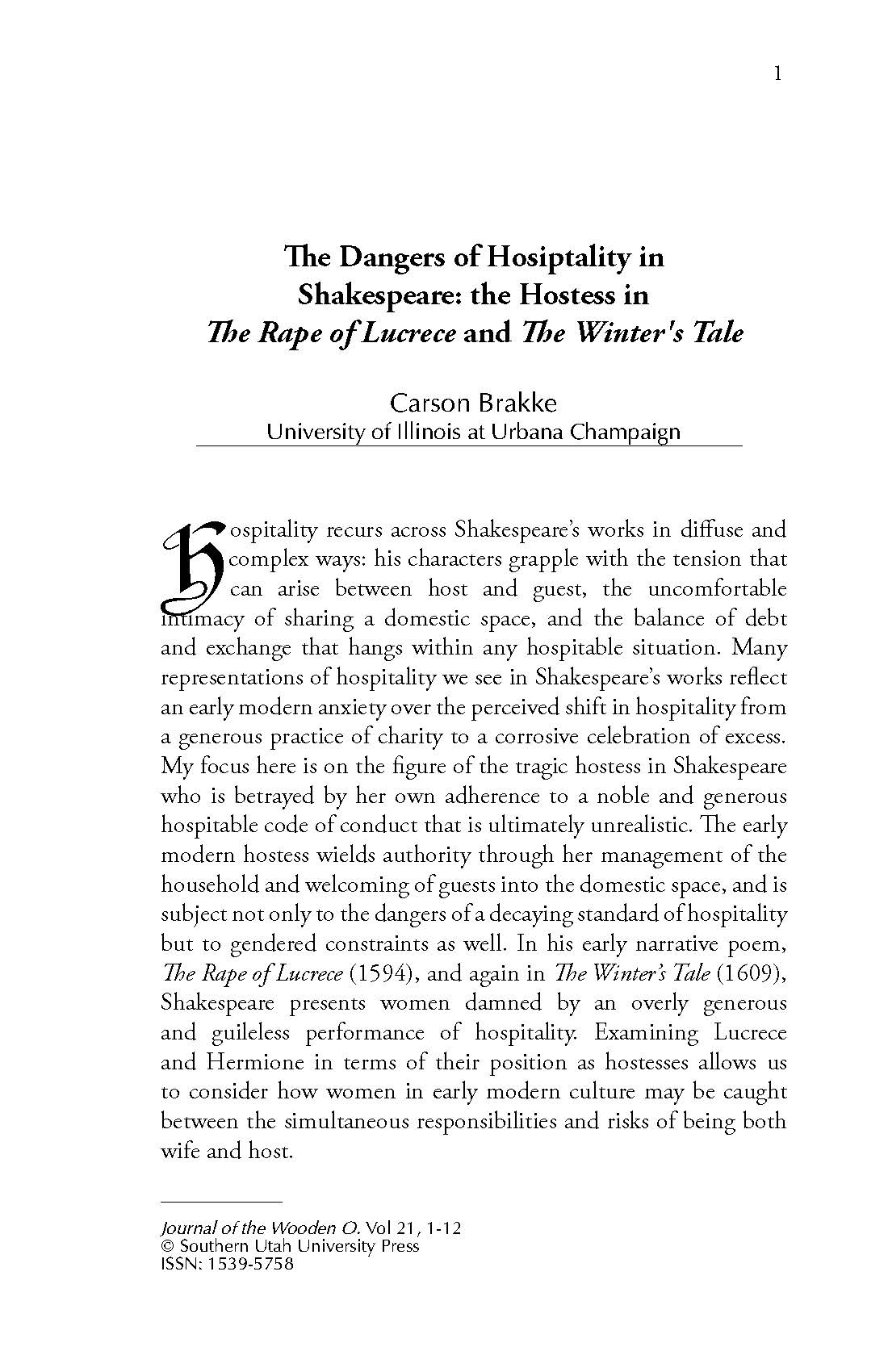The Dangers of Hospitality in Shakespeare The Hostess in The Rape of Lucrece and The Winter's Tale
Main Article Content
Abstract
Hospitality recurs across Shakespeare’s works in diffuse and complex ways: his characters grapple with the tension that can arise between host and guest, the uncomfortable intimacy of sharing a domestic space, and the balance of debt and exchange that hangs within any hospitable situation. Many representations of hospitality we see in Shakespeare’s works reflect an early modern anxiety over the perceived shift in hospitality from a generous practice of charity to a corrosive celebration of excess. My focus here is on the figure of the tragic hostess in Shakespeare who is betrayed by her own adherence to a noble and generous hospitable code of conduct that is ultimately unrealistic. The early modern hostess wields authority through her management of the household and welcoming of guests into the domestic space, and is subject not only to the dangers of a decaying standard of hospitality but to gendered constraints as well. In his early narrative poem, The Rape of Lucrece (1594), and again in The Winter’s Tale (1609), Shakespeare presents women damned by an overly generous and guileless performance of hospitality. Examining Lucrece and Hermione in terms of their position as hostesses allows us to consider how women in early modern culture may be caught between the simultaneous responsibilities and risks of being both wife and host.
